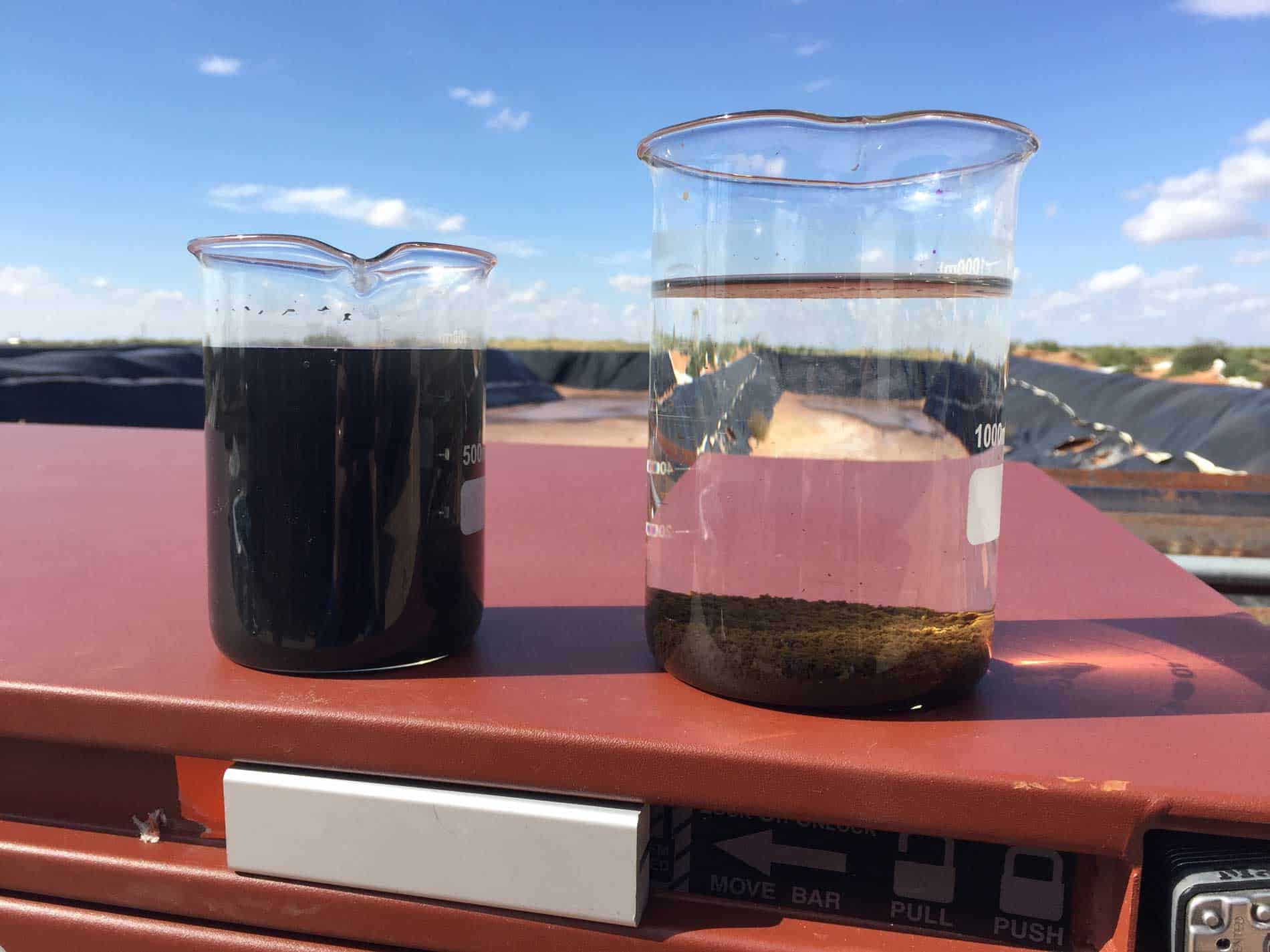EN 872 Suspended Solids in Water Filtration Test
The EN 872 standard specifies a method for determining the concentration of suspended solids in water samples, particularly relevant for produced water and process water within the oil and gas sector. This test is critical for ensuring that water used in oilfield operations meets quality standards set by regulatory bodies and industry best practices.
Suspended solids can significantly impact various aspects of oilfield processes, including the performance of filtration systems, the efficiency of water reuse, and compliance with environmental regulations. By measuring suspended solids according to EN 872, operators can maintain optimal operating conditions while minimizing environmental harm.
The test involves filtering a known volume of water through pre-weighed filter membranes and then drying and reweighing the filters to calculate the mass of suspended solids. The procedure is designed to be robust and reproducible, making it suitable for both routine monitoring and research applications.
Understanding the concentration of suspended solids helps in several ways:
- Evaluating the effectiveness of water treatment processes
- Predicting potential wear and tear on filtration systems
- Determining compliance with environmental standards like ISO 14001 or EU Directives
- Optimizing water recycling and reuse protocols in oilfield operations
The significance of this test extends beyond operational efficiency to environmental responsibility. High concentrations of suspended solids can lead to sedimentation, which may clog pipelines or affect the quality of produced hydrocarbons. Compliance with EN 872 ensures that water treatment and recycling systems are optimized for longevity and performance.
Operators in the oil and gas sector often face stringent requirements from regulatory bodies such as the EPA, HSE, or national equivalents. Adhering to standards like EN 872 is not only a legal requirement but also a best practice for maintaining operational efficiency and environmental responsibility.
The standard’s applicability extends to various stages of oilfield operations, from exploration and production to processing and disposal. By ensuring that suspended solid levels are within acceptable limits, operators can minimize the risk of equipment failure and optimize resource use.
Why It Matters
The importance of monitoring suspended solids in produced water cannot be overstated. Excess suspended solids can lead to a variety of operational challenges:
- Pipeline Clogging: High concentrations of solids can accumulate and block pipelines, reducing their efficiency.
- Filtration System Degradation: Accumulated particles can damage or reduce the capacity of filtration systems over time.
- Environmental Impact: Excess suspended solids released into the environment can harm aquatic ecosystems.
- Product Quality: In oilfield operations, clean water is essential for maintaining product purity and quality.
By adhering to EN 872 standards, operators can mitigate these risks. Regular monitoring ensures that water treatment processes are effective and that any issues are addressed promptly. This not only enhances operational efficiency but also contributes positively to environmental sustainability.
The test results provide actionable insights into the performance of water treatment systems and the overall quality of produced water. This information is crucial for making informed decisions about maintenance, resource allocation, and regulatory compliance.
Eurolab Advantages
EuroLab offers comprehensive testing services that are second to none in accuracy and reliability. Our expertise in oilfield water testing ensures that every sample analyzed is processed with precision and care:
- State-of-the-Art Facilities: Equipped with the latest technology, our laboratories provide accurate results.
- Certified Technicians: Our team of experts adheres strictly to international standards like EN 872, ensuring consistent quality.
- Comprehensive Reporting: We offer detailed reports that include all relevant data and analysis.
- Quick Turnaround Times: Efficient processes mean faster results for your business needs.
- Regulatory Compliance: Our services meet the stringent requirements of regulatory bodies worldwide.
- Industry Reputation: Trusted by leading companies in the oil and gas sector, EuroLab is a name you can count on.
EuroLab’s commitment to excellence ensures that every sample analyzed meets the highest standards. Our services are designed to meet the specific needs of quality managers, compliance officers, R&D engineers, and procurement professionals in the oil and gas industry.
Why Choose This Test
- Regulatory Compliance: Ensures adherence to international standards such as EN 872.
- Precision: Accurate measurement of suspended solids for optimal water treatment processes.
- Environmental Impact Reduction: Minimizes the release of harmful substances into the environment.
- Operational Efficiency: Helps in maintaining efficient filtration systems and preventing blockages.
- Data-Driven Decision Making: Provides reliable data for informed decisions regarding water treatment processes.
- Cost Savings: By identifying issues early, the test helps prevent costly repairs and replacements.
The EN 872 Suspended Solids in Water Filtration Test is essential for maintaining the integrity of produced water and process water used in oilfield operations. It ensures that operators are meeting both internal and external expectations for quality and environmental responsibility.





